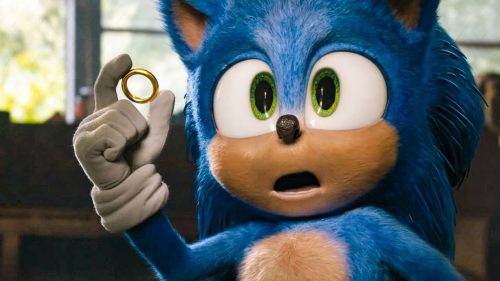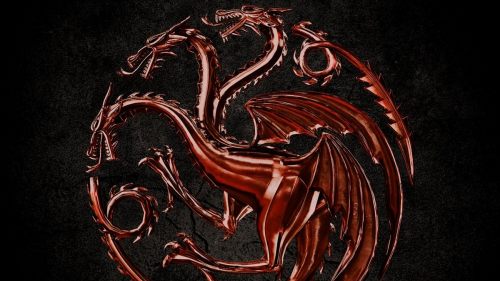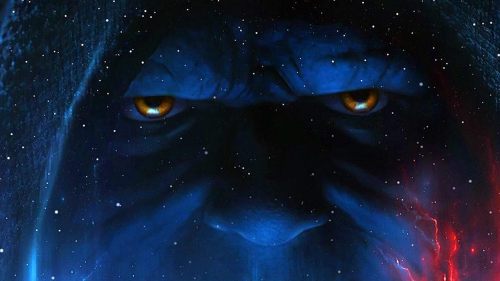Art, Capitalism, And Dealing With The Dragon Of Disappointment
Fandom can often seem the worst aspect of any given media franchise today. While most fans are positive about what they love, many aren’t, and toxic voices easily drown out the rest. Many fandoms are affected by this kind of rot, but the rot itself always exhibits the same characteristics - vicious hatred towards art that doesn’t meet their tastes, capitalistic ownership over creators, and entitlement to have a say in how art is made. It makes being a more-positive fan exhausting, and it has the potential to turn creators off creating things altogether.
We’ve seen fans strike back at creators many times in recent years, with varying degrees of rancidity and success. Mass Effect 3’s ending was trashed upon its release, with fans successfully demanding an expansion from developer BioWare making its ending more thoroughly explicit. Misogynists and racists have attacked a broad range of titles for their increased diversity, most visibly Star Wars and Marvel, blending invisibly with fans merely bilious over how their favourite characters’ stories went, and completely failing in their attempts to curb progress. DC fans have lobbied Warner Brothers for years over a “Snyder Cut” of Justice League, the existence of which is doubtful at best. The film adaptation of Sonic the Hedgehog has been delayed to accommodate fan rage over its protagonist’s design, incurring additional VFX costs that almost definitely won’t be matched by additional box office. And most recently, a petition to remake the final season of Game of Thrones has topped a million signatures.
Look, if you’re unhappy with a movie or a season of television, I get it. We all invest a lot of emotion in stories - that's literally the entire point of stories - and it can be crushing when they don’t turn out how we want them to. The underlying anger behind fan petitions and other “fan actions” frequently appears to be caused by fans not getting what they, specifically, want. Some say that outright, like a Game of Thrones petition signature quoted by Deadline, saying (somewhat ironically) “I would like to see the best in people, not the worst.” Others make broad, nominally craft-related complaints (“the writing is terrible!”), but when pressed, frequently can’t back them up without admitting that they just don’t like the outcome of the story.
We see a lot of similar traits in these backlashes. Many incidents centre on the culmination of countless hours of storytelling, spread over multiple years, generating so much emotional investment that the mere existence of an ending will be anticlimactic regardless of the actual content. Bringing long-running stories to an end is hard, and it’s near-impossible to please everybody, especially when they’ve had years to formulate their personal dream endings.
When creatives become publicly associated with their creations in audiences’ minds, the whiplash from praise to blame can be stunning. The flat structure of social media amplifies and grants outsize visibility to extreme opinions, while allowing fans to spew their rage directly at those “responsible”. And when there’s overlap between the fan community and already-toxic online hate elements, it becomes all the worse. The inevitable end result of all this is fans petitioning the creators of their favourite works to remake those works, or hand them over to someone who will.

I could write (and in a couple cases, have written) entire essays defending the various choices made by Game of Thrones’ showrunners, or Mass Effect 3’s developers, or Rian Johnson, or even the makers of Sonic. I like many of those choices. Those that I don’t like, I can still mostly respect. Those I don’t respect, I can always understand as the result of creative or budgetary constraints. Art is hard to make, especially at a budget and visibility level enjoyed (or suffered) by the work we’re talking about here. But this debate, such that it is, runs deeper than any one person’s reasons for liking or disliking specific creative decisions.
Honestly, there’s only one way to respond to this particular kind of anger: tough shit. It’s not your story; you’re just listening to it.
Despite Comic-Con rhetoric to the contrary, movies, TV shows, and games do not belong to the fans, and fans do not have control over the storylines - nor should they. It’s not even a matter of who would make the “better” decisions; it’s a matter of who’s telling the story, and producers, writers, directors, and developers are the ones doing that. They’re the ones working their asses off (if I see one more clueless Internet personality calling a creative team “lazy,” I will scream) for our entertainment pleasure, and demanding changes to fit your personal taste is ridiculous and disrespectful to their work.
Storytelling media is art made by individuals to their own taste, then put out into the world in the hope that it’ll fit others’ tastes. If it does, great; if it doesn’t, too bad. Some stories succeed, while others fail, and others still sit somewhere in the middle. There is no way at all to tell a story in a way that pleases everybody, whether it be a billion-dollar franchise or a bedtime story. With franchises as popular as Star Wars or Game of Thrones or Mass Effect, with that many characters and plot threads, you’re lucky if you please half your audience.
Some people would claim that displeasing audiences is a dereliction of transactional duty - a revealing opinion clearly tied to the continued commodification of storytelling. There’s been a shift, of late, from stories as art to stories as product, or worse, as service. The rise of user-created content on the internet over the past decade or two further muddies this situation, truly making it seem, in many eyes, like anyone has the right - nay, the duty - to demand changes to other people's work.
These people often take the “consumer rights” road, claiming that they have the right to get the product they wanted. With the same casual entitlement that one might send a hairy soup back to the kitchen, they’ll snap their fingers and ask creators to do it again, but better this time. But unlike an actual television, you can’t return a TV show claiming it doesn’t function as advertised, because the quality of art is entirely subjective. Nobody gives you a money-back guarantee that you’d be satisfied with where a story goes - it’s a story, and it’s exempt from the kind of consumer rights that exist around, say, faulty spark plugs or salmonella-infected food.

This has resulted in what, to anyone who’s ever created a work of art, is something of a capitalist nightmare. If creators listened to every individual complaint about our art, they'd go mad, and indeed, it's only recently that they have been doing so. Social media makes individual responses more intrusive and present, and it has fomented awful pressure between creators and audiences. Angry fans brandish their wallets and demand change, because they spent $12 on that ticket, God damn it, and they deserve to be unreservedly happy with the result.
That’s a pointless waste of energy, considering that outside Kickstarter scenarios, consumers don’t directly fund the creation of work at all. But personal pressure is a powerful weapon against storytellers, who tie their self-worth to their work as creators just as tightly as media corporations encourage fans to tie their identities to it as consumers. When marketing and society reinforces to you just how important it is that You Love This Thing, it’s easy to view unexpected or unwanted developments as personal attacks. After all, you love that thing. It is you, and you it. This kind of entitlement - one cultivated by decades of shifting culture - helps cause the trouble the creator-consumer relationship now has. It’s not limited to huge corporate products - see the outrage whenever indie creators make something they want to make, as opposed to what The People want them to - but the culture has been led by them.
Life is full of disappointments. If you thought a television show was able to crush your dreams, wait until you discover careers, or relationships, or your own life choices in general. Sometimes we just have to take disappointment on the chin and move on. It’s a key life skill, and one that will only become more important as the world teeters toward difficult compromises becoming necessary for our very survival. If you’re disappointed with yourself, you can try to work on that. But there are a lot of things you can't change in life, and unless you’re personally commissioning it, "somebody else’s art" is among those things.
Art isn’t a democracy, and it’s not driven entirely by the free market, either. If it weren’t for being created by individuals, no bold choices would ever be made, and art would cease to be interesting. As a result, art is seldom enjoyed equally by everyone. That’s just part of the unwritten contract between creator and viewer. We all wish that films and TV shows and other media were perfect. But what’s perfect for me won’t be perfect for you, and vice versa. Your favourite movie will be someone’s least-favourite movie, and your most-hated movie will be somebody’s most-adored. All artists can truly hope to do is to make art that’s true to their own intentions. The fact that some fan campaigns have worked against that is a troubling precedent.
We moved on from the Star Wars prequels, and in time, we’ll move on from the rest of this stuff too. You don’t have to like something to accept it, and you don’t have to hate something to criticise elements of it. If you’re unhappy with a show or a movie, you’re every bit within your rights to be grumpy. Write a review. Rant to your friends. Hell, “fix” the situation for yourself and make your own damn movie, if that’s your jam. But don’t expect it to be remade in any official capacity just to appease you. If you don’t like it, you don’t like it - and that’s fine. Take a breath and learn to live with it.



